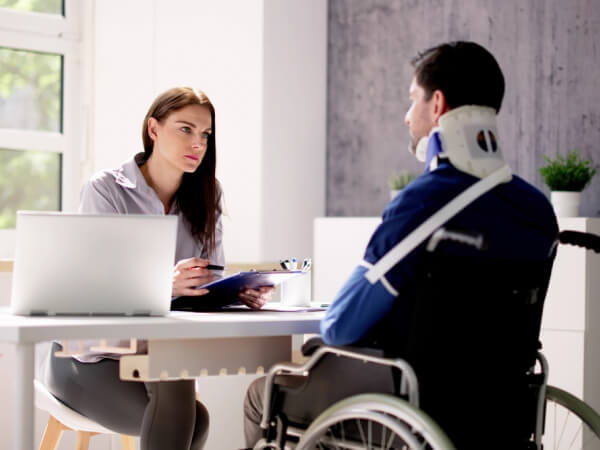Eyewitness Testimony
Eyewitness Testimony
An eyewitness? testimony can either make or break your case. Here we take a look at just how important witnesses are in personal injury cases.
In previous blog postings, we have discussed the impact that technology has had and will continue to have on personal injury claims. Specifically, we have stressed how activity on social media sites, as well as investigators hired by insurance companies, can be used to refute valid claims.
Also previously mentioned are steps you can take after an accident to help increase a successful outcome for your claim. One of those steps is ensuring that you get contact information from any witnesses to your accident.
Often in personal injury cases, eyewitnesses are used to help corroborate claims and provide an unbiased account of what occurred in order to give a clearer picture to a judge and jury. There are many advantages and some disadvantages to the use of eyewitness testimony.
Advantages of Eyewitness Testimony:
When credible and reliable, eyewitness accounts of an accident can depict and clarify the immediate events surrounding an incident. More than one eyewitness’ account can solidify the narrative surrounding an accident, especially if it is written down and recorded directly after the incident when memories are still vivid. Eyewitness testimony contributes important insight, for example, on the sequence of events and the actions of each of the involved parties, which a judge will often weigh in making a decision on negligence.
Eyewitness testimony is highly influential to a jury, as members get a visible and audible account of what occurred, making it easier to believe or disbelieve elements of a claim.
Eyewitness testimony is considered actual evidence in court proceedings and can sometimes play a big part in determining the outcome of a case.
Concerns with Eyewitness Testimony:
Eyewitness accounts of an accident may not always be accurate. Accidents can be an emotionally charged time and shock can play a role in the quality of facts given.
People can sometimes be susceptible to suggestion and “fill in the blanks”, since recounting an accident at the time of trial is based solely on memory. This is why it is important to obtain a written or video account of what was seen soon after an accident, if possible.
With today’s technology, cameras are everywhere, in all shapes and sizes, recording almost anything in public. Aside from this, the constant use and availability of cellphones can willingly or inadvertently capture images of both public and private lives.
Video recordings or still photos can provide excellent evidence during a trial. This type of evidence has become more and more common. For example, parties have presented photographs of damaged and unsafe sidewalks, broken stairways, icy parking lots and damaged vehicles. Pictures and video can offer an unbiased account of what occurred but can still sometimes be subject to interpretation. An experienced personal injury lawyer understands how to effectively use this type of evidence to prove the defendant’s liability in a claim and ensure that the act of negligence is not minimized or understated.
If you or a loved one has suffered injury, contact our personal injury lawyers at Burn Tucker Lachaîne. We offer services in French and English. Our many years of experience and professionalism are to your advantage as we guide you through the claims process. We will take care of the legal and evidentiary requirements necessary in building your successful claim for compensatory damages so that you can concentrate fully on your recovery.
Call us today for a no-obligation assessment of your case.
Written by Laurie Tucker
Related Articles
Are CERBs Deducted From an Income Loss Award in Ontario?
The Superior Court of Justice recently weighed in on whether payments for the Canada Emergency Response Benefit (CERB) and the Canada Recovery Benefit […]
Driver and Pedestrian Safety Tips for This Halloween
Halloween is a time of year where children are out trick-or-treating. Although this is a fun filled event for kids, it also brings […]
Should We Have Civil Jury Trials?
What is a Civil Jury Trial? In most civil court cases in Ontario, either party has the right to a jury trial. They […]


